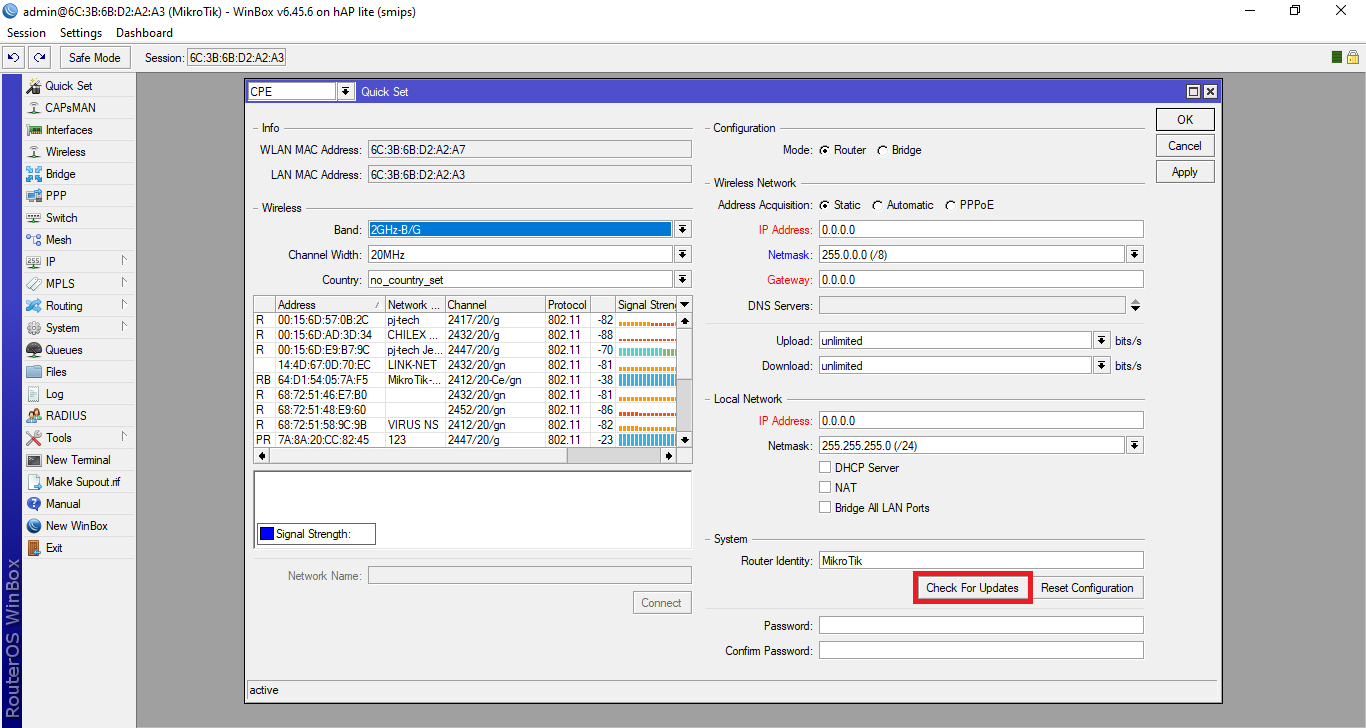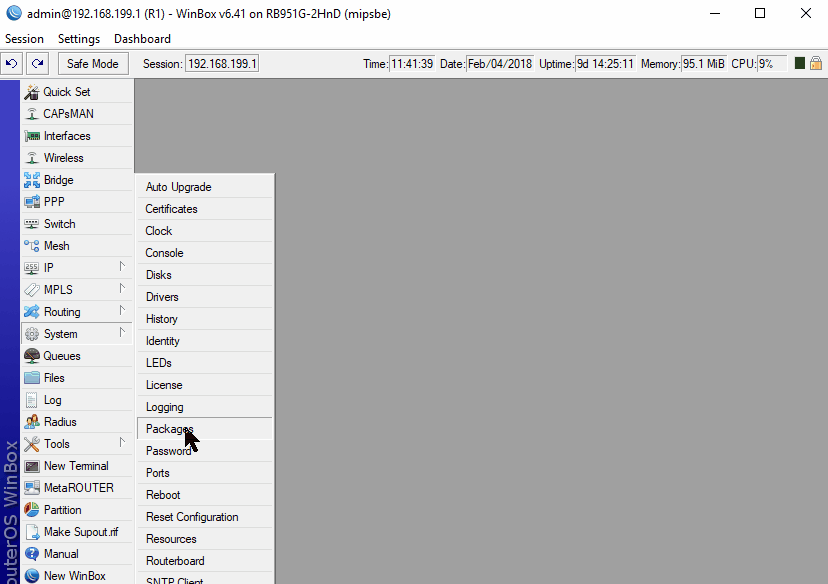

Now the firmware version of the device (bootloader) is always the same as the RouterOS version, and I don’t have to spend time manually updating the firmware. :if ( != ) do=" policy=reboot,read,write,policy start-time=startup Menu - Script Data Name: AutoUpgradeFirmware This script should run as soon as the device boots, so we create the script in the task scheduler, not in the script store. ✏️ Note: check that after the specified pause time before the script starts, the Internet will really have time to connect or increase the delay before the script runs. If the versions do not match, the MikroTik device downloads the updated version of the RouterBOARD firmware and reboots the device after installing the new firmware version.

The used RouterBOARD firmware version ( current-firmware) and the RouterBOARD version offered for upgrade ( upgrade-firmware) are compared. The script runs 3 minutes later (180 seconds delay) after booting the MikroTik device.


When you run the script and successfully execute the action the icon changes to the thumb icon: The clock icon is displayed for the routers having an action scheduled: Starting it from the Web is not supported for security reasons! In order to run the update, you must log in to the ISPadmin console and run the /usr/local/script/ispadmin/bin/ command under root authorization. The green box above the router list will show you what you have done. In the menu below, select Update MikroTik OS to: x.xx. By ticking the appropriate checkboxes on the left side of the router list you can select the routers which the OS should be automatically updated for to the latest version.


 0 kommentar(er)
0 kommentar(er)
